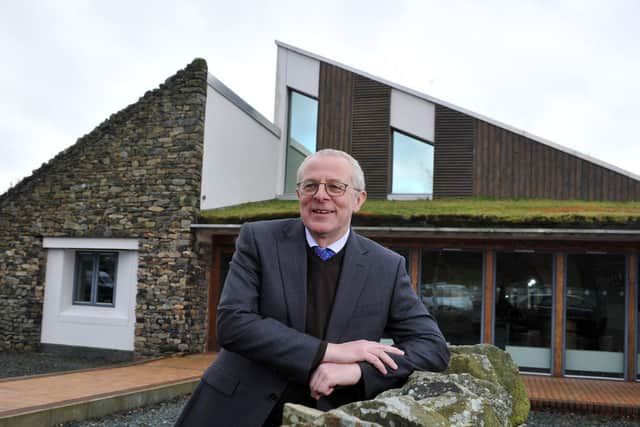Yorkshire-based Ecology becomes first building society to publish carbon footprint of its mortgage lending
The Silsden-based lender, which is celebrating its 40-year anniversary this year, offers a range of savings accounts which fund mortgages for properties and projects supporting individuals and communities to adopt green building practices, improve the energy efficiency of the UK’s housing stock and to live or work in a way that promotes a sustainable economy.
In order to calculate the carbon footprint, or ‘financed emissions’, arising from their lending, Ecology has applied the new Global Greenhouse Gas Accounting and Reporting Standard which was developed by the Partnership for Carbon Accounting Financials (PCAF) and launched in November 2020.
Advertisement
Hide AdAdvertisement
Hide AdFinanced emissions arise from the burning of fossil fuels (mainly gas) to heat and power mortgaged properties.


By reporting their financed emissions, Ecology is adding their weight to the growing momentum for all banking providers to measure and disclose their emissions. This will be critical as the financial sector supports the transition to a net-zero economy to meet the Paris targets.
The move to calculate the emissions from their sustainable lending is in addition to their long-standing commitment to measure and report the carbon footprint from its day-to-day business operations including the energy used to heat its offices, purchasing supplies as well as commuting and travel. Ecology offsets these operational emissions through accredited tree planting schemes.
Reporting emissions from residential property also helps to focus attention on the condition of the UK housing stock, and the growing need for an urgent national programme of renovation, if net zero targets are to be met.
Alison Vipond, Ecology’s Sustainability lead explains,
Advertisement
Hide AdAdvertisement
Hide Ad“To achieve net-zero we need to unlock the financial solutions required to transition to a low carbon economy.
“Measuring our financed emissions using the PCAF methodology gives us a better understanding of our current mortgage portfolio. We are using this to help develop our net zero plan, especially to target and improve energy inefficient properties.
“We’re looking forward to sharing our experience with other banking providers at COP26 so that they can join us and use the carbon accounting approach to focus on building a sustainable future.”
Comment Guidelines
National World encourages reader discussion on our stories. User feedback, insights and back-and-forth exchanges add a rich layer of context to reporting. Please review our Community Guidelines before commenting.